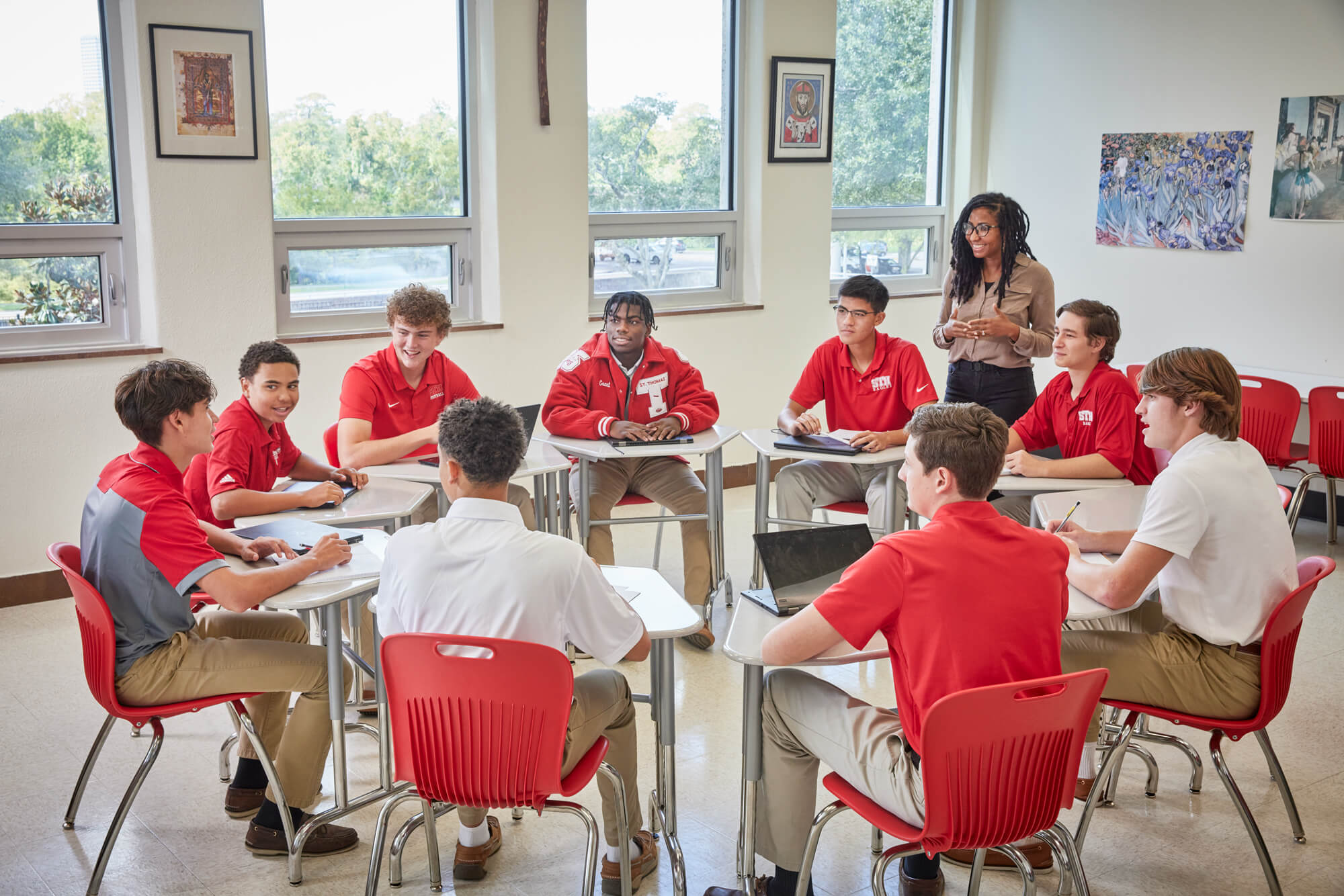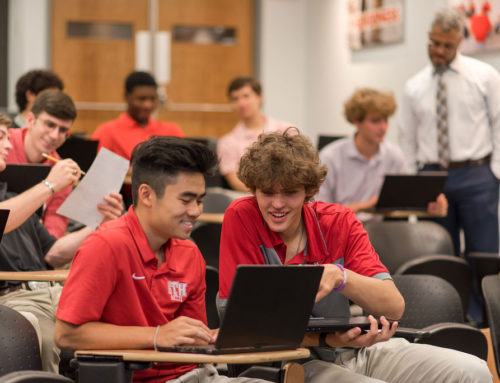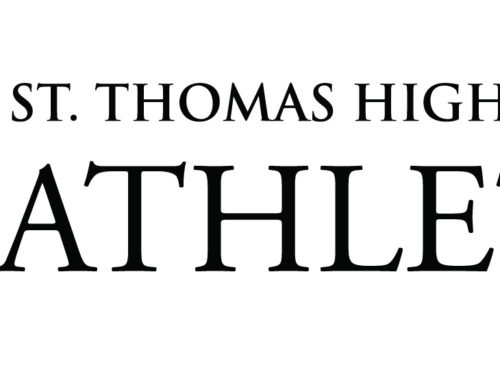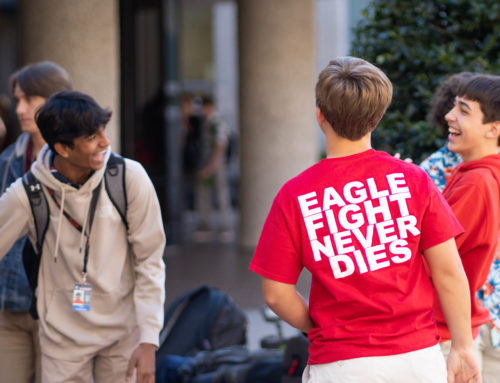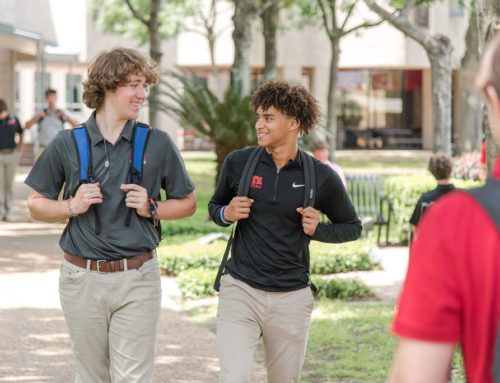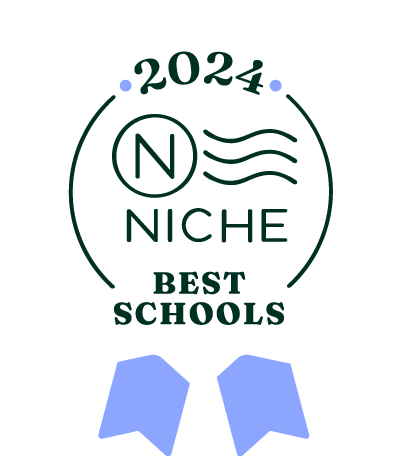Ok, you’ve considered your options, looked at the data, and made an informed decision: you are sending your child to private school. For many families, rankings, facts and figures are only part of the equation: the deciding factors in choosing a specific school often come down to selecting the one that best aligns with your child’s learning and development – a place where they can be in a position to thrive.
So, the next step is figuring out which school is the best choice. There are so many factors at play: Where will they be the most comfortable? Where will they find the greatest learning opportunities? What place can offer the most programming (academic, extracurricular and spiritual) for a well-rounded educational experience? How will your child continue to grow into being a good person? And which school will help them reach their goals – including the college of their choice? Every child is different; as are the experiences you’ll find at every school.
Robust Curriculum and Individual Learning Style
Every student benefits from extra attention; that’s what you’ll most likely find in private schools. With smaller classes, teachers are able to know your child personally and ascertain how they learn and achieve – exactly where they are coming from academically. Smaller classes also foster student participation with a more intimate learning environment, whether it’s individual study or collaborative work. Is your student looking for advanced or specialized studies? Private schools often offer multiple options, including AP, IB and dual-credit courses that allow students to take college-level subjects. Maybe your student requires extra help? Tutoring programs are also often part of the private school learning experience.
Private schools are also able to offer rigorous, challenging academic programs that prepare students for college, their careers and beyond – by maximizing learning outcomes in addition to meeting and exceeding education agency guidelines and testing standards.
Questions to ask yourself: Does the group of schools you have narrowed down offer curriculum, courses and class environments that will meet your student where they are academically? Is it an environment that will drive them to be a better version of themselves?
Ready for College and Life
The right secondary education paves the way for college and beyond. In addition to a college-preparatory curriculum and opportunities to develop as a well-rounded candidate for preferred colleges, private schools also offer guidance and planning programs to make the process easier. Many schools feature a four-year college planning process that allows students to hopefully select and be accepted to their first choice college, as well as academic programming that supports students on PSAT/ACT/SAT testing. In addition, private schools often have strong alumni programs that connect current students with alumni in a variety of preferred professions.
Questions to ask: Does the school you are considering have robust guidance and college-planning resources? Do they help their students get into the college of their choice? Is there an active alumni association that provides networking opportunities?
Moral and Character Building
One of the benefits of a religiously affiliated secondary school is a focus on faith, morality and shared values – through study and service, instruction and prayer. Students from a similar faith background will find a spiritual home that reinforces the beliefs of their families and faith community and help them maintain a moral code. At the same time, such schools offer respect and understanding of other religious traditions.
Questions to ask: Does the school provide an opportunity for your student to be a good person? Are the school’s faith values supportive of what is taught at home? Does the school provide a welcoming environment regardless of a student’s faith?
A Well-Rounded Approach
Whether your child is an academic powerhouse, a star athlete, a computer genius, a musical prodigy, or a combination of all, today’s private schools offer world-class resources to develop student interests – resources that most public institutions cannot match. In addition to libraries, private schools can offer advanced learning and technology labs and collaboration spaces, summer study programs and tutoring capabilities.
First-class athletic complexes, professional coaching staff and participation in competitive sports support the development of dedication, loyalty, discipline and teamwork. Arts and performance facilities give students the tools and training to develop their creative sides. Private schools also support diverse clubs and organizations that allow students to pursue their passions and build a community around activities they love.
Questions to ask: Does the school you are looking at offer the clubs and organizations and athletics that line up with your child’s interests and help them develop as a whole person? Is there the opportunity to create new clubs around other issues and activities?
Learn More About Us
At St. Thomas High School, a Roman Catholic college preparatory school for young men in grades 9-12 in Houston, Texas, we are focused on educating and enriching outstanding young minds during the most formative years of their lives. Through high-tech classrooms and state-of-the-art athletic facilities to the constant celebration of its rich and storied tradition, the diverse and welcoming St. Thomas community prides itself on providing the most fulfilling and well-rounded high school experience to inquisitive, ambitious and extraordinary young men. We foster a brotherhood for life.
St. Thomas Checks All the Boxes
Final questions to ask: Does it feel right? Yes, school rankings are important, but does this school offer what you need and does it align to your core values from academic, extracurricular and faith perspectives? Is it right for your student as an individual? Very often it’s easy and preferred to follow friends with their academic choices, but what’s right for one person is not right for every person.

